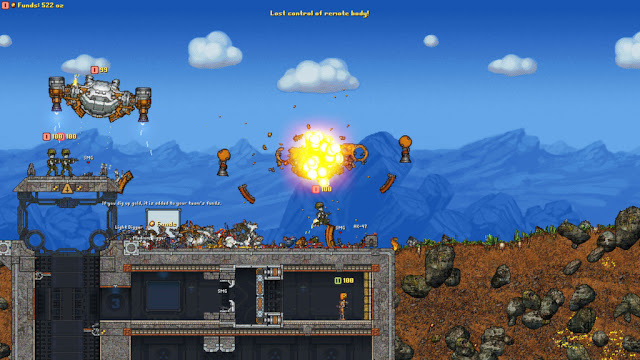Dev-Corner: the challenges of developing long, plot-heavy FOSS games
Xenogear: Fighting Elly's Gear
By this time, some of you are probably wondering why I'm raving about a proprietary console game on a FOSS gaming blog. Well, there's another interesting fact about Xenogears that makes it very relevant to the topic of developing games with long, linear plots: it was never really finished. There's all sorts of speculation as to why this might have been; my own pet theory is that upper management decided they'd been waiting too long and paying too much, cut the project short, and told them to shove it out the door as-is. This becomes very apparent when you reach the second half of the game -- it goes very abruptly from a deep, plot-heavy game to an irritating scene where they briefly summarize massive amounts of plot that would have added about thirty to fifty hours of gameplay, before finally releasing you back out into the world to do a few last quests and fight the final boss.
So Xenogears, the Unfinished Symphony of JRPGs, is as example of two really important points:
- It's difficult to predict the real scope of a project until after you've already committed to it, and...
- Even big teams with large amounts of money often have trouble finishing ambitious projects in a timely fashion.
So as I see it, if we as FOSS developers want to create the sort of plot-heavy games that I'm referring to (be they JRPGs or whatever else), the odds are stacked against us from the outset. So here's what I'd like to discuss:
FOSS software development undeniably has certain strengths that closed development lacks -- the sheer volume of ideas, as well as the fact that, since FOSS development is primarily done on a volunteer basis, you aren't limited by time or budget in the traditional sense -- your project can continue as long as people remain interested and dedicated, and there's no one in upper management to tell you it's time to throw away your efforts. With this in mind, I'd like to pose some questions for everyone, and hopefully get some discussion going:
- How can we, as a community, apply these strengths to the sort of project that requires a large development team and a grand, unifying vision?
- How do you go about convincing a large number of people to join an ambitious project? As someone who has been following FOSS game development for quite a while now, overly ambitious projects tend to make me very skeptical. How do you overcome this skepticism and convince people to help you out, if you're dealing with the sort of project where it's not practical to start small?
- Once people are on board, how do you keep the quality consistent? How do you keep a ton of people interested in working on a grand plot line that's already been fleshed out essentially from start to finish? FOSS developers need (and deserve) to give input to the projects they're helping with. How do you maintain a vision while simultaneously leaving room for input?
- One bit of advice I find myself giving out over and over is not to be too ambitious to start with. Sometimes, though, you need to be ambitious in order to make a project work. How can you divide things up in such a way that you can be ambitious yet still start small enough to get your project going?
I'd love to hear your thoughts!
Peace,
Bart K
Founder, OpenGameArt.org


Comments
Post a Comment